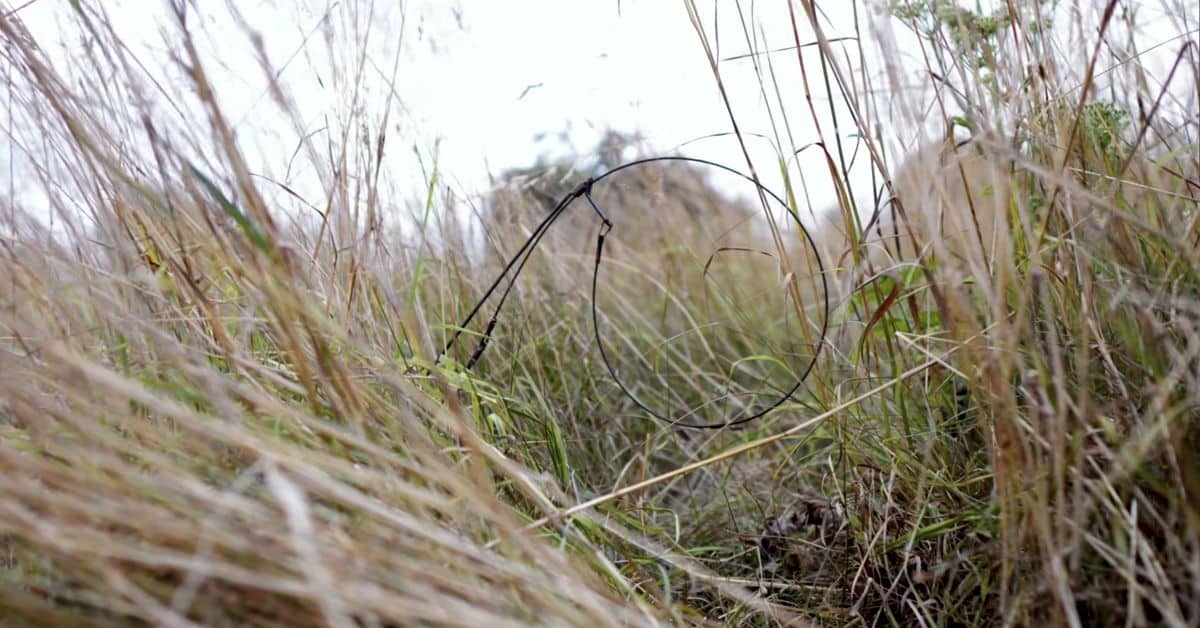It’s a massive victory for wildlife as Scotland’s snare ban comes into force on 25 November. The new legislation follows one year after Wales’ snare ban, while England continues to lag far behind both countries when it comes to the welfare of wildlife.
Scotland banned snares back in March of this year as part of the Wildlife Management and Muirburn (Scotland) Act, but it is only today that it can be enforced. Along with a ban on snares, and like similar legislation in England and Wales, the Act makes it illegal to use or supply glue traps.
Snares are used by gamekeepers on shooting estates in a cruel and misguided attempt to protect birds – who are going to be killed for sport – from predators. Data from a few years ago suggested that approximately 1.7 million animals are caught in snares across the UK every year, though this figure will likely drop considerably with the bans in force in Wales and Scotland. Admirably, too, Guernsey voted through a snare, glue trap and lamping ban in July.

‘We must build on this momentum’
Scottish Greens’ Ariane Burgess – who was instrumental in securing the ban – celebrated, saying:
“It is a victory that animal rights campaigners should be proud of. Without their pressure calling for all snares to be outlawed, our wildlife would still be subject to this cruelty…
Scotland has brought in the most robust laws on hunting with dogs in the UK, and we will continue to campaign for an end to cruel blood sports across species and wildlife crime that has no place in our modern society.”
She concluded:
“We must build on this momentum and keep pushing for even further improvements for all of Scotland’s creatures, great and small.”

Meanwhile, Scottish animal welfare charity OneKind celebrated by gathering outside Scottish Parliament, along with MSPs. OneKind Director, Bob Elliot (third from left in the image above), said:
“Today is a historic day for Scotland. After decades of campaigning for a ban, we are thrilled that from today the use of snares is now illegal.”
He continued:
“Fourteen years ago, we stood in this very same spot, with a very similar sign, to encourage the Scottish Government and public to envision a snare-free Scotland. Today, we’re thrilled that this is no longer a vision, but a reality.”
Labour needs to follow suit
When Labour reached power in July of this year, the Protect the Wild team celebrated with cautious optimism. Before winning the election, Labour stated that it would ban snares in England if elected. While it is yet to take any meaningful action, a harrowing video, published by The Mirror on 17 November, has put the snare ban argument at the forefront of public consciousness again. The footage shows a fox caught in a snare on King Charles’ Sandringham estate. Just days later the Green Britain Foundation released undercover footage of a fox trapped in a snare on the Duke of Westminster’s estate in Cheshire.
The shooting industry previously tried hard to hoodwink Scottish and Welsh politicians as they prepared to change snare legislation, with land owners and gamekeepers making their pro-snare, pro-cruelty voices loudly heard. And we can be sure of yet more lobbying of Westminster politicians to come.
Protect the Wild will be ready to counteract the false narratives that come from the shooting industry: we are likely to see lobbyists trying to persuade politicians that ‘humane cable restraints’ are pain-free alternatives that should be implemented in England, for example. Of course, there’s nothing ‘humane’ about these restraints. In fact, they’re just the same old snares being marketed as something else – and animals still die.
And we will, most likely, hear gamekeepers lamenting that a ban on humane cable restraints would be “devastating” to their livelihoods, claiming that it will also mean a “crippling blow” to biodiversity and particularly devastating for ground-nesting birds such as the Curlew, a now endangered shorebird which has been hard hit by development of its lowland breeding sites and coastal wintering sites. The ‘ground nesting’ species gamekeepers are of course really concerned about are grouse, pheasants and partridges.
-
Scotland, Wales and Guernsey weren’t fooled by such narratives. It’s high time for the Labour government to stick to its promise and draw up its own legislation to ban snares once and for all.

